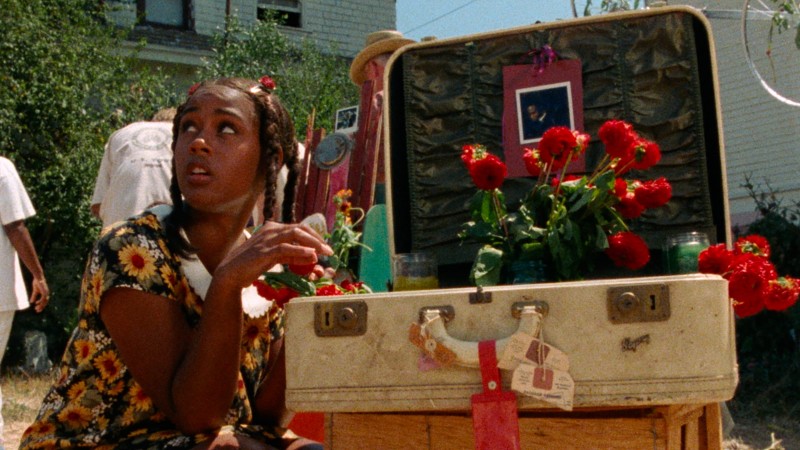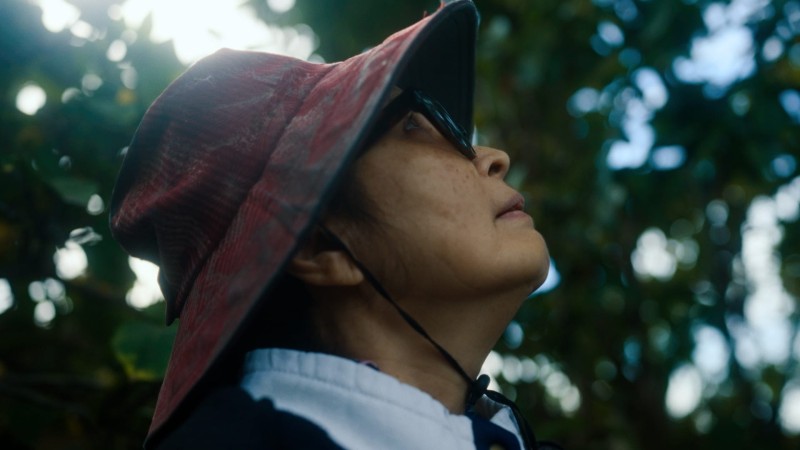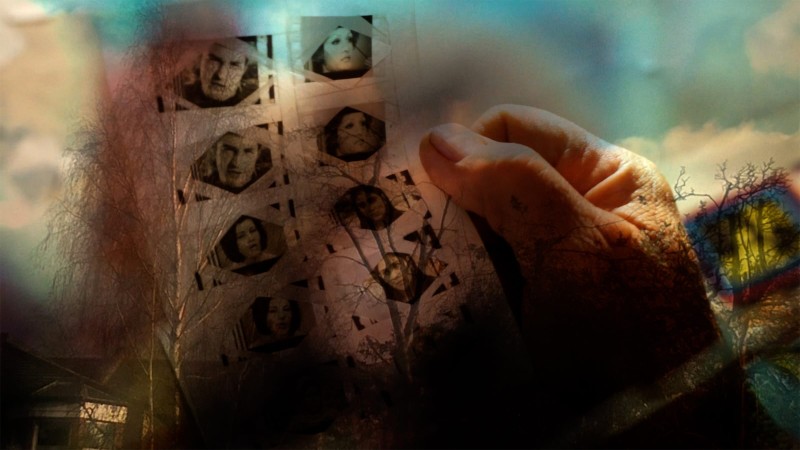Mathieu Amalric: Director, Smoker

There’s an infectious energy and excitement that radiates from the French actor and filmmaker Mathieu Amalric. This is palpable in his performances on-screen or on the stage, and it was in full force when he visited Criterion while in New York recently for a whirlwind week of events scheduled in conjunction with the opening of "Mathiew Amalric: Renaissance Man," an extensive retrospective of his work copresented by Anthology Film Archives and the French Institute Alliance Française (FIAF). Anthology's portion of the program, which ran through November 8 and focused on Mathieu's impressive efforts behind the camera, included screenings of six feature films and five shorts he’s made over the past two decades (and also featured some of his most memorable film performances: in Arnaud Desplechin’s Kings & Queen, Roman Polanski’s Venus in Fur, and Otar Iosseliani’s Favourites of the Moon). FIAF’s series, which runs through mid-December, highlights Mathieu's versatile work as an actor in films ranging from Desplechin’s My Sex Life…or How I Got into an Argument to Julian Schnabel's The Diving Bell and the Butterfly to Wes Anderson's Fantastic Mr. Fox (for which Mathieu provided the voice of Mr. Fox in the French-language version of the film). Whatever the role, Mathieu brings a playful mix of physicality and dramatic intelligence—whether he’s playing a break-dancing violist or a Bond villain. We were fortunate enough to catch a glimpse of these qualities when Mathieu stopped by the Criterion kitchen, where the conversation flowed as easily as the wine.
Right now you have two simultaneous retrospectives happening in New York, and last month you had a massive retrospective of your work at the Cinémathèque française. This is quite a celebratory time for your career.
Yes, I can die now.
Tell me about your experience with the Cinémathèque events. Did you spend a lot of time there?
I went there seventeen times, and it wasn’t just Q&As. Each time I invited technicians, sound engineers, editors, scriptwriters, the first AD, people who do transportation and food, et cetera, to show what it is to make a film, and the fact that there are all these jobs. So each day it was different. And then of course there was also Roman Polanski, Arnaud Desplechin—everybody came. It was a bit strange. There was a poster at the Cinémathèque that was Sam Peckinpah, Martin Scorsese, and my face. But it was very nice because we were just talking about how to make a film. I didn’t want to be alone up there talking about being an author. In France, you know how it is about those things, as though you do a film on your own. It’s a lie. You do what you can with what you have, but then everybody has a secret influence. That doesn’t mean it’s a democracy, but it’s how it works.
Was there one conversation that was your favorite or particularly illuminating?
Yeah, the conversation with the first AD.
What does a first AD do exactly?
That depends on the relationship you want to have. You can just do everything by phone, but the first AD really has to guess what you want. I write and change things at the last minute, so it’s very difficult for a person to plan. But she guesses, and she knows in what order you'll shoot the film, what scene you need to start with. She finds sets and locations, really everything. Also just the memory, and all the ideas you have that you forget because you’re shooting.
Do you always work with her?
Yes, but now she’s doing her own film. So it’s finished with us—but it’s great because I’m going to play in it.
What was the first film you ever worked on?
Otar Iosseliani’s Favourites of the Moon. He’s the one who made me fall in love with movies. He never takes actors, he only takes friends, and when I was seventeen, on that film, I saw a set for the first time. That was in 1984.
How did you meet Otar?
My parents were journalists and they worked for Le monde in Moscow, so they liked to meet people who weren’t part of the regime. That was in the ’70s, between ’73 and ’77. So that’s where my father became a close friend of Otar's—through alcohol. Otar lived in Moscow when he was young because he was at the school for cinema for a few years. But he’s a musician and a mathematical man.
Do you consider yourself a director?
First of all, I don’t consider myself anything. Well, I consider myself a smoker, that’s the only thing. I fell into movies more just by making them, starting when I was seventeen, and I’ve done all the jobs.
Is there one you prefer?
No, I like all the jobs. At the time, when everything was on film, I liked the editing, so I was an assistant editor.
But then you became an actor on Favourites of the Moon.
When you see the film you will see that nobody is acting. His first film was closer to having psychological concerns. But then he’s also often compared to Jacques Tati. It’s hundreds of small characters, and it’s more choreographed. And then, like all the Italian and Russian films at that time, you do the sound afterward.
You did a bit of that sound effect on The Blue Room.
We did it for the special poetry it can bring; it can really tell something. We shot knowing that I wanted wind, music, and the kiss. So the dubbing effect was nice for that scene.
Do you ever consider the sound or music before the picture?
Yes, it can happen, and then sometimes the music can change completely. I remember for Mange ta soupe, which is a bit autobiographical, about my mother . . . I had to find a good distance to talk about that, and I remembered Glenn Gould’s Bach: The Goldberg Variations, and I thought maybe that was the way I could find distance between comedy and tragedy, because it’s so up and down. I thought it would be like making a collection of butterflies and pinning them—to have that cold distance but at the same time to have compassion. It’s the way he played that brought me that idea. And at the moment, I’m working on something difficult about the singer Barbara, who is not well known in the United States but was a legend in France. So for that the first thing I have is the sound.
As a director, do you consider yourself a dictator or a collaborator?
I’m a dictator who disguises himself as a very nice guy. Of course you have to be a dictator, because you have to give the impression that you have the desire to be making what you’re shooting.
Do you always work with the same team?
Yes, and I work on their films.
Do you often really find the film in the editing process?
It’s strange—you always have the feeling that you’re finding the film or losing it during the writing. But shooting is different—it’s more about saving your life, and in fact, maybe you’re not aware of miracles that are happening. But those miracles were possible because you worked a lot before. So it’s possible to do some free jazz on set because everybody knows the chords together.



